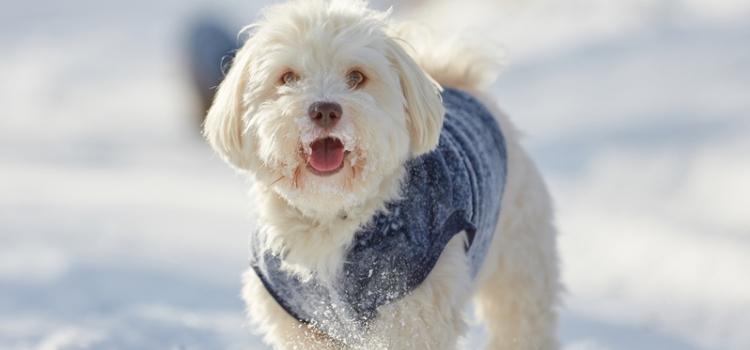Consumer Tips
Winter Safety Checklist for Pet Owners
The winter months bring cold temperatures and snow to most parts of the country, presenting several safety hazards to our pets. Here are four (not so obvious) best practices for pet parents to keep their dogs and cats safe this winter.

- Use “Pet-Friendly” Antifreeze
Thankfully, it’s well publicized that antifreeze is tempting to pets, as well as a detriment to pet health. Accidental ingestion is a big reason why pet owners are so thankful for the services of their pet insurance company every year.
Some antifreeze brands have an added bitterant to keep pets and children from ingesting it, and others, like Prestone LowTox Antifreeze Coolant, are less toxic blends. You should still be careful to keep your pet away from it, but if accidental ingestion should occur, results may not be fatal.
- Bang on Your Car Hood Before Starting the Car
Feral and loose cats know how to find warm sleeping spots, often including wheel wells and warm car engines. Too often, these cats are run over or maimed by rotating fan belts or engine components. Get in the habit of always banging on the hood as you approach your car, and then honking the horn before you start it, to scare away potential heat seekers.
- Screen Your Fireplace
Cats love to use fireplace soot as cat litter, but should never be allowed to get in the habit of entering an open fireplace. Secure screens or glass doors to fireplaces. Here’s a helpful video showing how. Another option is laying something undesirable in front of the fireplace, like double sided tape or a “scat mat.”
- Microchip or Invest in a GPS Collar
Microchipping is a great way to ensure your pet always has identification, but the chips only work if your pet is found and scanned correctly. A GPS pet tracking collar is a great backup, especially in the winter. Of course, leash safety should be of prime concern year-long, but microchips and GPS collars can really pay off if your dog becomes lost.
If a winter-related accident or illness occurs with your pet, be sure to call your veterinarian immediately so they can help you determine what to do next. Unexpected veterinary visits can be expensive but that’s where pet insurance can help, by reimbursing on veterinary bills.
Learn more about Union Plus Pet Insurance
